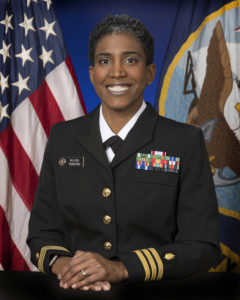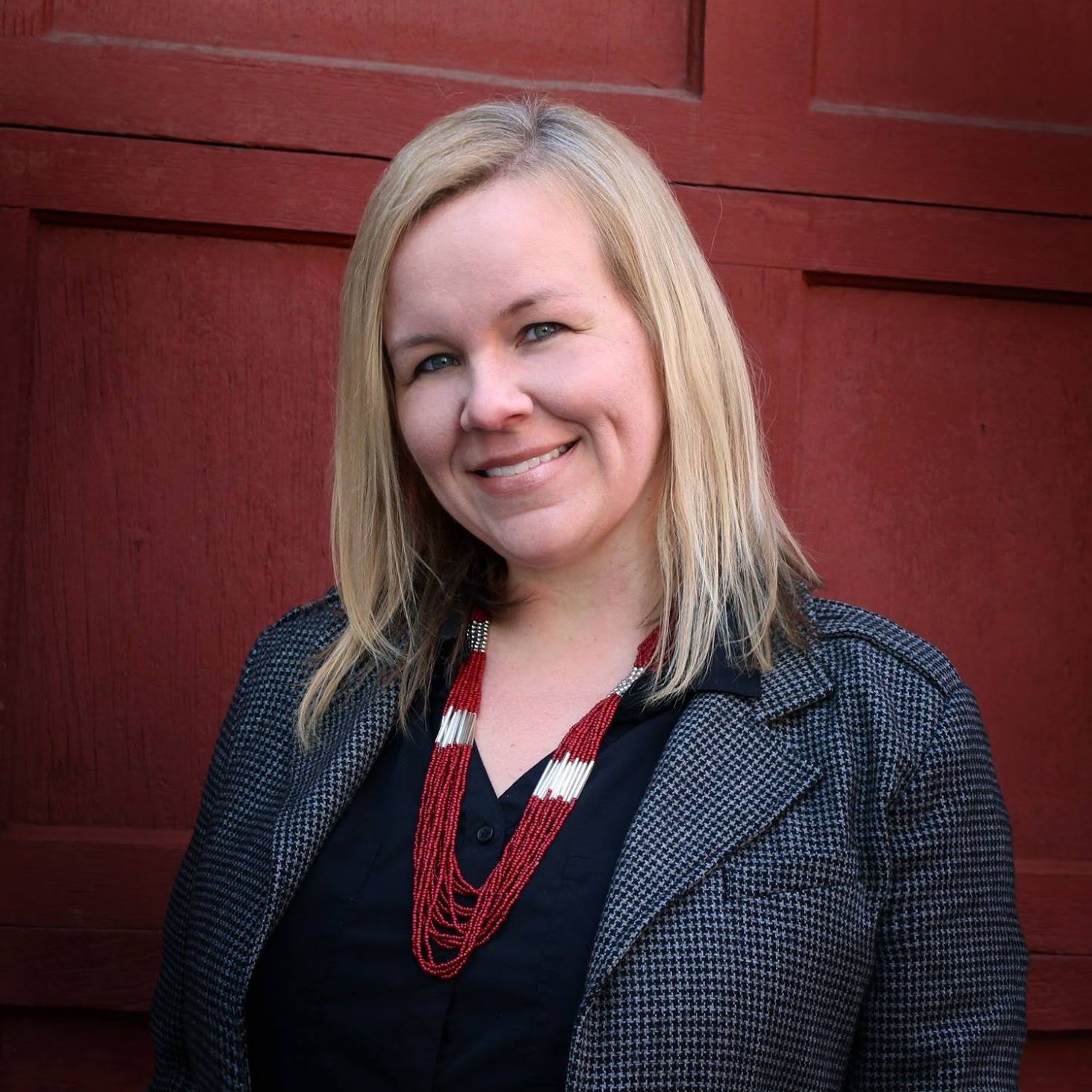23 November 2020
Creating a ‘Culture of Health’ in the Military
An interview with Jonas-Geneva Scholar CDR Melissa Troncoso
Navy Commander (CDR) Melissa Troncoso, MSN, NP-C, CHWC is a 2018 recipient of the Jonas-Geneva Scholarship, a partnership between Jonas Philanthropies and The Geneva Foundation established in 2016 funds doctoral candidates seeking to improve healthcare for veterans and military personnel. Geneva and Jonas are committed to supporting nursing leaders who are leading critical research for important healthcare issues facing our military.
One of those issues is nutritional fitness.
According to the U.S. Centers for Disease Control, 78 percent of military veterans battle obesity, which is more than twice as high as the U.S. average of 35 percent. “Improving our military force’s nutritional fitness is a joint readiness issue as nutrition is a determinant of health and performance,” said Troncoso.
As a Uniformed Services University (USU) Graduate School of Nursing student pursuing a doctoral degree in Nursing Science, CDR Troncoso’s research goal is to identify factors that influence eating behaviors among junior enlisted service members, particularly how military service and Navy culture impact service members’ food choices and dietary habits, to facilitate a culture of health that promotes and supports individual efforts to maintain healthy eating habits.

A culture of health
The military emphasizes physical fitness, and that’s easy to legislate; nutritional fitness, or how people feel about eating, is more difficult to manage.
A Family Nurse Practitioner with extensive clinical experience working with military personnel, military retirees, and their families, Troncoso was curious about the diet-related disease she saw among young service members and wanted to find out what was getting in the way of service members making healthy food choices. She identified a gap in the literature on eating behaviors among service members, especially Navy personnel.
CDR Troncoso’s doctoral research into this topic is focused on junior sailors ages 18-25 in a non-deployed setting because they are in a controlled environment. “In garrison, their quality of life should be good,” she added. “This is the space and time for sailors to recharge and repair. Sailors should have access to resources that prepare them to be ready for deployment.”
What she found was far more complex.
“There are many social and environmental factors that influence sailors’ eating behaviors,” she said. “Junior enlisted sailors are in some respects a vulnerable population with less agency and autonomy than their civilian counterparts. Factors such as shift work, financial resources, access to cooking, the food environment on military instillations, work-related stress, their mental and emotional states are directly tied to eating.”
“When it comes to nutritional fitness, we have to change the culture,” said Troncoso. “Making the healthy choice the easy and preferred choice. Quick fixes and reactive interventions are insufficient. An ‘all hands on deck’ approach is needed.”
“Are you really going to do something about this?”
She is focused on advocating for her research participants and engaging at multi-levels. “I have a great deal of respect for the people who shared their experiences with me,” she said. She recalled when a research participant, frustrated at the disconnect between leadership and junior sailors said, “Are you really going to do something about this?”
“We both wanted to see change,” said Troncoso.
CDR Troncoso co-authored the recently published manuscript, “Targeting Nutritional Fitness by Creating a Culture of Health in the Military” in Military Medicine where she provides recommendations and doesn’t advocate for creating more weight loss programs in the military, but for changing the entire culture. “We need to do more than just talk about nutrition. Knowledge doesn’t change behaviors. We have to look at the whole environment to understand how to maximize our most valuable asset to the warfighter – the human body.”
Troncoso is focused on disseminating her analysis to date and collaborating with other groups including the Air Force, Army, and participating in the Department of Defense’s Food and Nutrition Committee to encourage this shift in thinking. “When a military leader commented, ‘I didn’t know that but we can fix it,’ that is motivating and rewarding,” she said.
Impact of the scholarship on her research
As a Jonas-Geneva Scholar, CDR Troncoso received $10,000 towards her research goals. Because of the financial opportunity, she was able to purchase books without stress and attended the Jonas Conference to see what other nursing researchers are doing in the field of fitness and nutrition.
“Aside from the financial reward, hearing others acknowledge the significance of my research to the military is encouraging. It makes you want to live up to that,” she said.
Her advice to future Jonas-Geneva Scholars
- Write down your why because the journey is long and hard. CDR Troncoso said there will be many opportunities to say, “I quit” so when the going gets tough, it is important to come back to that piece of paper and remind yourself that what you’re doing is important.
- No one can do it for you, but you can’t do it alone. “Remember that you have a village and people are willing to help if you ask for it,” she said. “Don’t be afraid to look outside of your discipline or familiar group for encouragement too.”
- Enjoy the journey. Troncoso said, “It is long and arduous but you will emerge bigger and better for it so you might as well enjoy it.”
- Trust the process. It might not make sense in the beginning but as you move closer to the finish line things become clear, she reflected. She advises talking to people at different levels in a doctoral program and beyond will show you that you’re not alone and you’re not crazy because she has been there.
- And finally, pick your battles wisely. “Ask yourself, ‘am I willing to die on this hill?’” she said. “Some things deserve a ‘smile and nod’ or just push through, while other issues warrant the hard work to address. You cannot do everything and your energy is a finite and precious resources—use it wisely.”
Find out more
CDR Troncoso will be virtually presenting her preliminary research findings at an hour-long talk during the 129th AMSUS Meeting.
If you are interested in finding out more information about the next Jonas-Geneva Scholarship opportunity, please contact us.

"Making the healthy choice the easy and preferred choice. Quick fixes and reactive interventions are insufficient. An ‘all hands on deck’ approach is needed.”
CDR Melissa Troncoso
HIGHLIGHTS
- The military emphasizes physical fitness, and that’s easy to legislate; nutritional fitness, or how people feel about eating, is more difficult to manage.
- CDR Melissa Troncoso identified a gap in the literature on eating behaviors among service members, especially Navy personnel.
- She received the Jonas-Geneva Scholarship which assisted her in the pursuit of impacting change when it comes to nutritional fitness and its impact on our military's readiness.


